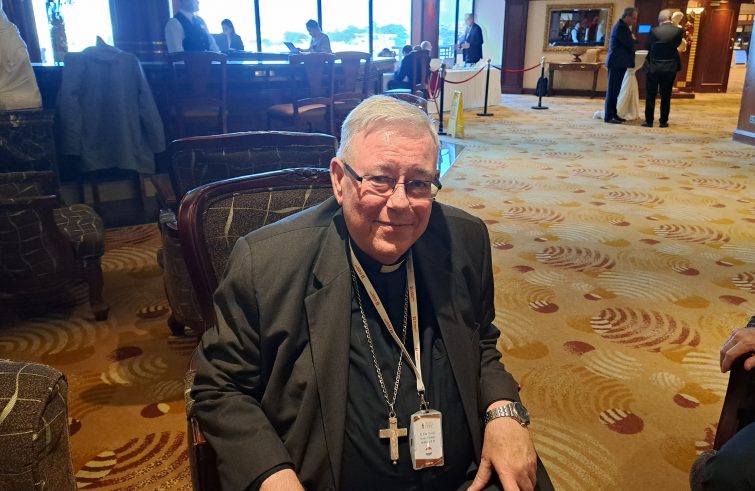
(from Malta) “It is not necessary to be progressive in order to be synodal. Synodality is for the whole Church. It is not limited to a liberal wing of the Church.” Card. Jean-Claude Hollerich, Archbishop of Luxembourg, vice-president of the bishops of Europe and general rapporteur for the Synod, reviews the synodal journey so far in this interview granted to the SIR (Italian) and KAI (Polish) news agencies during the CCEE Plenary Assembly in Malta entitled “New Steps for a Synodal Church in Europe.” Card. Mario Grech, General Secretary of the Synod, outlined the guidelines for the preparation of the second part of the Synod, which will take place in October 2024, while Card. Hollerich discussed the relationship between supranational structures and synodality “for a new missionary thrust of the Church in Europe”.

Your Eminence, you participated in all the working sessions as well as in the continental meetings of the synodal journey. What is the “state of health” of the Church?
The Church is in a very good state of health, and I believe that those who make a different diagnosis have a vested interest in doing so.
Of course, good health must always be nurtured. And even if we are in a good state of health, there is still room for improvement. Synodality, because it says that the Church is totally missionary, will indeed contribute to the health of the Church. Jesus entrusted the mission of the Church not only to priests, but to everyone, in different ways of course. But if the whole Church has this spirit of mission, in my opinion, many things will be different.
At the beginning of the Synod it was said: “Do not be afraid to share your fears with us bishops”. Which criticalities have emerged?
First and foremost, many people appreciated that they had been heard. They told us: “This is the first time that someone at this level of the Church has listened to me”. These are beautiful words, but they also hurt.
If the shepherd does not know his flock, how is he going to do good unto them? I believe that the vocation of bishops and priests includes the act of listening.
I may be told things I do not want to hear, but this also happens in the family. But if a mother and father have the courage to listen, we should listen too.
Why do you think bishops have concerns when it comes to listening to persons?
I think the episcopate has become a profession. You have a secretariat. Things are done and have always been done in a certain way. Everyone, including the clergy, involved in the bishop’s office, has received the same formation. In some cases, they attended the same universities.
What is needed, however, is a greater openness, because with the passage of time positions become cemented, and when the cement hardens it is very difficult to change anything. I think that by listening it is possible to prevent the cement from hardening.
Speaking of cement and cemented positions, it has been said that positions differ to such an extent that some see a risk of schism in the Church. Will the Church come out of this Synod more divided?
No, that’s propaganda. It is the propaganda of a small group that wants to make it seem that way.
Take, for example, the bishops and members gathered at the Synod. There is great diversity among them. Very different positions, and this diversity is inherent in the different cultures to which they belong, in their respective continents. Their positions differ because some are more liberal and others more conservative. But all the paragraphs were adopted with 80 per cent of the votes. I don’t know of any parliament – although the Synod is not a parliament – that has been so successful. Political life is much more divided. In the Synod we have managed to have a unity of heart.
The aim is not division, but unity, the aim is to walk together. If someone does not want to walk together, they invent this idea of a schism.
There may be some who are disappointed by unfulfilled expectations…
All the time. We have a left-wing group and a right-wing group. The left-wing group thinks that the Synod has changed everything. But that is not possible because the Synod does not have the authority to change anything, since it is a consultation for the Holy Father. Furthermore, the theme of the Synod is ‘For a Synodal Church. Communion, participation, mission’. Obviously we cannot talk about everything and change everything. Moreover, there are those whom the Pope calls ‘backtrackers’, i.e. those who do not want to walk at all or who want to walk backwards.
But we want to walk forward.
How will the Church emerge from all this?
I think it will be more united. It will be more unpretentious. The vast majority of the Synod participants were enthusiastic. Those who did not share the idea of the Synod have raised their voices, but I repeat, they are only a small group. It is not the majority. Of course there is also criticism, which is necessary. And naturally, there is room for improvement.
Do people understand what the Church is working on? Are they interested?
The term ‘synodality’ is obviously a complex word. When I try to explain it, I simply say that the Synod is about the Church and being together in the Church, and people understand that. I believe that the litmus test of synodality will be the experience of synodality at grassroots level.
If synodality is not experienced in the small communities, in the parishes, if it is only lived or discussed in the highest spheres of the Church, it will only be a ‘window dressing’.
This is the challenge facing the Bishops today. At the same time, I believe that we cannot expect everything to change overnight. We are talking about radical changes that will take time, but they require a clear vision of what God wants for the Church and then a firm determination to make it happen. We have never had such a great response from all the churches. This is positive, but it is not enough. We need to move forward.










